|
|
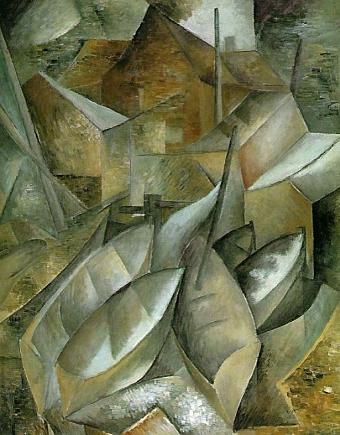
Fishing Boats
1909
Georges Braque
d. August 31, 1963
_______________________
Dusie 10: the Canadian issue
June, 2010
Beautiful bones
Monica Kidd
(for Graeme Patterson)
“… a man in himself is a city…”
-
William Carlos Williams, Paterson (1946)
An imaginary map
of an unimaginary place.
Of motionless afternoons.
Of cats melting into asphalt.
Of boarded-over windows
and old hockey injuries.
I know this place. It is
caught under my nails
and between my toes.
It is the wind that bothers
the curtains before sound,
before time, before the dog
has stretched and yawned into
her paws and forgotten,
for the moment,
about breakfast.
It is the country I travel alone,
Stegner’s exclamation
beneath the prairie sky.
Pat(t)erson: the city is a man.
Perhaps, but what is a city that never took?
A pothole swallowing all
we’d rather forget.
A plastic rat I thought was a flower
blooming in the wreckage.
A dead grandfather
half a country removed.
Beautiful bones.
We peer through broken windows
into the eyes of strangers.
_______________________
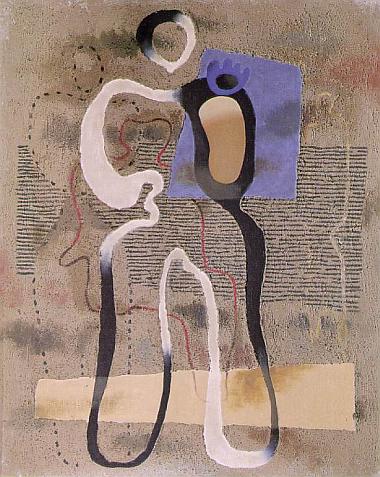
Standing Figure with Blue Plane
1933
Willi Baumeister
d. August 31, 1955
_______________________
Galáxias
Haroldo de Campos
translated from Portuguese by a.s. bessa
ubu
'rounded by flowers under god's under the devil's mercy god shall guide you for I myself can't guide godbless those who give me 'rounded by flowers and those who are still to give sounding like a shamisen made of a tensed wire a stick and an old tin can at the end of the partyfair at highnoonhigh but for many that music did not exist it could not because it could not popplay if not sung that music is not popular if not in tune it does not atone nor tarantina and yet struck in the gut of misery in the tensed gut of the meagerest physical misery aching aching like a nail in the handpalm a rusty blind nail in the palm clasping palm of the handheart exposed as a tensed nerve retensed a renigrated blind nail everlasting in the palmpulp of the hand in the sun while selling for meager cruzeiros gourds in which the good form is fine meagerness of matter morphing famineform of halfbaked clay in the rottenroot of distress until others vomit their plastic plates of embroidered borders empirestyle for mistress misery for this is popular for the patrons of the people but people create and people engender and people wonder people are the languageinventor in the malice of the mastery in the smartness of marveling in the vein to improvise stuttertrying to traverse oiling the sun's axis for people know no servitude pure or quasi metaphor people are il miglior fabro in the hammering gait aiming the impossible in view of the nonviable in the crux of the incredible oiled hammergait and the sunaxis but the wire that wire bladewire painpained like a demented plangent wire hammering its widowed dischord in blazing brasses of howling hunger 'rounded by flowers 'rounded by flowers 'rounded by flooowers for I myself cant guide check this book this object of consumption this undergodunderthedevilsmercybook which I arrange and disarrange which I unite and disunite voyages of a vagamonde in the vagaries of vague moons god shall guide the devil shall guide you then for I can't don't dare or care don't trick nor touch or trade but only for my change my pennies my pains my rings my fingers my minuses my nadas in the antennas in the galenas in these nests in these rests as we'll verify in the verbenas in the sugary açucenas or minor circumstances I know all this don't count all this disappoints I'm not sure but listen how it sings value how it tells savor how it dances and don’t propose that I guide don’t pose dispose that I guide unguided that I pray for promise that I trust you leave me forget me let me go untie me so that at the end I stand erect at the end I revert at the end I concert and for the end I reserve myself as it will be seen that I am correct it will be seen that there is a way it will be seen that it's been done and that through wrongs I made it right that from a scent I made a cent and if I do not guide I do not lament for the master who taught me does not teach any longer baggage of mirrormoon in the mirage of the second that through inversion I was dexterous being inverted by the sinistrous I do not guide because I do not guide because I can not guide and don't ask me for mementos just dwell on this moment and demand my commandment and do not fly just defy do not confide defile for between yes and no I for one prefer the no in the knowing of yes place the no in the ee of me place the no the no will be yours to know ...(more)
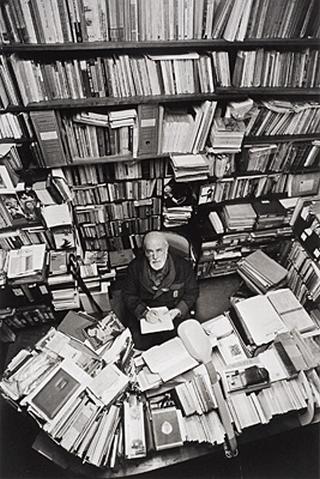
Haroldo de Campos
August 19, 1929 - August 16, 2003
"Conscious of our failures, we are obliged, as poets of the space in which we live, to construct what not yet exists."
-
Haroldo de Campos
Charles Bernstein on Haroldo de Campos
"Concrete Prose": Haroldo de Camposs Galáxias and AfterMarjorie Perloff
From Dante to the Post-Concrete: An Interview With Augusto de Campos
Roland Greene _______________________
... all signs are that the next few years will be a combination of economic stagnation and political witch-hunt.
This is going to be almost inconceivably ugly.
-
Paul Krugman
_______________________
In New Orleans, Kindness Trumped Chaos
Lessons of dedication, solidarity, love, and recovery, five years after Katrina.
Rebecca Solnit
... we are entering an era where disaster will be common and intense. Survival will be grounded in understanding our own capacity for power and resilience, creativity, and solidarity.
_______________________
People who complain about "big government", but vote for Military Keynesians and Corporate Millenarians aren't interested in any kind of democratic control of capital. That's the last thing they want. Look at what they do. They're sending bagmen to the federal government and those bagmen do their jobs, with a vengeance. The rank and file is hanging on to its status in capitalism's race to the bottom. Without extravagant corporate entitlements and federal contracts, they're sunk and they know it.
When the Left talks about material security and economic justice, they're adding "relative to whom and not at my expense", not relative to what they have in an absolute sense. They despise and mistrust their petty nobility and its plans, and rightly so, but they have no problem with the concept of petty nobility itself. A true left wing program would mean complete upheaval in their world.
-
Al Schuman (Stop Me Before I Vote Again)
_______________________
Three Poems
Sarah Mangold
conjunctions
The book made an emotion of the lost territory
(for and after Bhanu
Kapil, Dorothy Richardson)
There he stood a comfort and a reproach the
event of the border. How powerfully the future
flows into the present. How to translate
migration into the work of the line. And how on
entering on experience one is already beyond
it so that most occasions are imperfect save
before and afterwards.
The border is unintelligible and only at the price
of solitude. Rewriting in neomuscular terms as
gesture. Perhaps everyone has a definite thought
rhythm and speech. If we breathe long
enough ashes in some kind of motion. Rhythm
which cannot be violated without producing
self-consciousness and discomfort. Continual
migration molecular. The whole process is
strange
strange and secret.
...(more)
_______________________
I want to rock your gypsy soul
Just like way back in the days of old

Happy Birthday
Van Morrison
31 August 1945
Turn up your radio and let me hear the song
Switch on your electric light
Then we can get down to what is really wrong
I long to hold you tight so I can feel you
Sweet lady of the night I shall reveal you
Turn it up, turn it up, little bit higher radio
Turn it up, turn it up, so you know, radio
La, la, la, la...

Parc de Sceaux. Morning
Eugène Atget
1925
_______________________
"The quotation in my works are like robbers lying in ambush on the highway to attack the passerby with weapons drawn and rob him of his conviction."(...)
Benjamin, who for his entire life pursued the idea of writing a work made up entirely of quotations, had understood that the authority involved by the quotation is founded precisely on the destruction of the authority that is attributed to a certain text by its situation in the history of culture.(...)
This particular way of entering into a relation with the past also constitutes the foundation of the activity of a figure with which Benjamin felt an instictive affinity: that of the collector. The collector also "quotes" the object outside its context and in this way destroys the order inside which it finds its value and meaning.(...)
The interruption of tradition, which is for us now a fait accompli, opens an era in which no link is possible between old and new, if not the infinite accumulation of the old in a sort of monstrous archive or the alientation effected by the very means that is supposed to help with the transmissin of the old. Like the castle in Kafka's novel, which burdens the village with the obscurity of its decrees and the multiplicity of its offices, the accumulated culture has lost its living meaning and hangs over man like a threat in which he can in no way recognize himself. Suspended in the void between old and new, past and future, man is projected into time as into somethin alien that incessantly elludes him and still drags him forward, but without allowing him to find his ground in it.
- Giorgio Agamben, The Man Wiithout Content, translated by Georgi Albert
_______________________
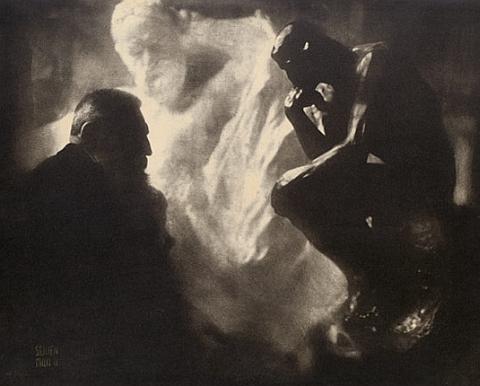
Rodin—The Thinker
Edward Steichen
1902
The Original Copy:
Photography of Sculpture, 1839 to Today
moma
_______________________
Homage to Translation: Benjamin in Japan
Forrest Gander
from A Faithful Existence: Reading, Memory, and Transcendence
If translation were the apparatus allowing us to approach--
If translation were always taking place as part of a politics concerned with the flow of power--
If Billie Holiday's late signature song “Strange Fruit” had been written by Able Meeropol, aka Lewis Allan, a Jewish poet from the Bronx--
If repetition were a form of translation--
If symmetry were understood as translation plus reflection--
Walter Benjamin famously wrote that a translation should have an awkwardness about it that shows off “the original's mode of signification, thus making both the original and the translation recognizable as fragments of a greater language.” He argued that translations should not attempt to ameliorate syntactical variance between two languages, but instead should celebrate the host language's instructive difference.
Curiously, Benjamin's radical claim about translation did not markedly influence his own translations of Baudelaire's Tableaux Parisian.
When I read a poem, I hear it in my thorax.
Basho praised a poetics of connotative associations, what the Japanese call “scent links” as opposed to merely thematic or linguistic links.
I often think of tone as the auditory equivalent of touch....(more)
_______________________
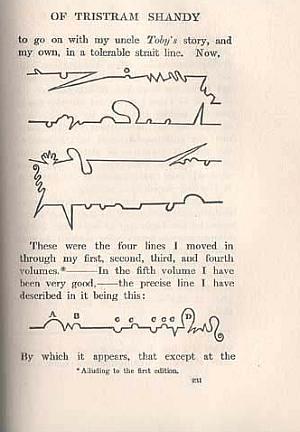
Tom Clark - readings in Tristram Shandy
1 2 3 4 5
_______________________
Reception:texts, readers, audiences, history
Vol. 2 (Summer, 2010)
_______________________
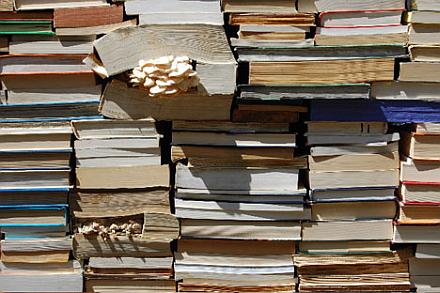
Designed by a Berlin-based team of Canadian artist-designer Rodney LaTourelle and landscape architect Thilo Folkerts, the Jardin de la Conaissance (Garden of Knowledge) seeks to introduce the book as not only a structural garden element of wall, bench and bed, but also as a growing medium.
Sandwiched within and between the reclaimed and decomposing books are several edible species of mushrooms like oyster and winecap, an intervention that highlights the living, ephemeral and cyclic character of these artefacts.
-
Mushrooms + 40,000 Discarded Books = 1 Garden of Knowledge
Jardins De Métis / Reford Gardens
via mosses from an old manse
_______________________
What is happening with books? University libraries now have sculptures made out of them in their opulent foyers. These sculptures are meant to signal that reading is an adventure, or fun, or something, but what they really announce is that reading, as it has been known for the past 500 years, is dead. Private citizens have rallied to photograph their own books and to post pictures of them on the internet. Some have suggested that this is a new sort of intellectual 'pornography'. I suspect the anxiety is dawning that if the books are not documented in this way, if they are not registered in the single great repository of all that exists, then their status will be merely antiquarian, home-decorative, or, for the more creative, perhaps, sculptural.
- Books,
Justin E. H. Smith
_______________________
Institute for the Future of the Book
and their blog if:book
_______________________
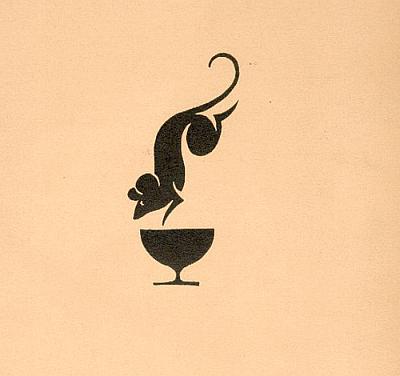
Recepta bibofilska
Kraków, 1934
(Society of Book Lovers)
Warsaw Warble
Illustration and design in Poland, 1917 to 1938
A Journey Round My Skull
_______________________
The Windows
Guillaume Apollinaire
August 26, 1880 - November 9, 1918
translated by Donald Revell
All the yellow dies from red to green
Where parakeets sing in the first woods
Pihi giblets
There is a poem to make about the bird with just one wing
We'll phone it in
Gigantic trauma
Brings tears to my eyes
Behold a young pretty girl amidst the youth of Turin
The poor boy sneezed in his white cravat
I'll raise the curtain
And voila the opening window
Spiders when my hands wove the light
Beauty pallor fathomless flowers
We'll fail at shuteye
We'll start over at midnight
If you've got the time you've got the freedom
Winkles codfish polysuns and sundown urchins
A yellow pair of old boots in front of the window
Towers
Towers are the streets
Wells
Wells are plazas
Wells
Hollow trees harbor vagabond half-breeds
Mulattoes sing mournfully
To noisy mulattoes
And the wa-wa goose trumpets northward
Where raccoon hunters
Scrape pelts
Vancouver
Glittery diamond
Where snow-white trains and nightlife fly from winter
O Paris
The yellow dies from red to green
Paris Vancouver Hyeres Maintenon New York and the Antilles
The window opens like an orange
Handsome sunshine food
The self-dismembered man:
selected later poems of Guillaume Apollinaire
Guillaume Apollinaire
translated by Donald Revell
google books
 Twin Trees
c.1963
Albert York
Town and Country
Tibor de Nagy gallery
via with hidden noise
_______________________
Cambden the nourice of antiquitie,
And lanterne vnto late succeeding age,
To see the light of simple veritie,
Buried in ruines, through the great outrage
Of her owne people, led with warlike rage;
Cambden, though Time all moniments obscure,
Yet thy iust labours euer shall endure.
But whie (vnhappie wight) doo I thus crie,
And grieue that my remembrance quite is raced
Out of the knowledge of posteritie,
And all my antique moniments defaced?
Sith I doo dailie see things highest placed,
So soone as fates their vitall thred haue neuer borne.
-
Edmund Spenser, The Ruines of Time
Translated Geographies: Edmund Spenser's "The Ruines of Time"Huw Griffiths
The two ironic movements that I want to talk about in relation to "The Ruines of Time" are the trope of the ruin and the troping mechanism of translation. In turn, both these movements will be looked at in relation to the Elizabethan development of a national geography. So, whilst this paper has a particularly narrow focus -- one relatively obscure poem by Edmund Spenser -- I believe it to have broader significances in a wider project that might seek to interrogate the notion of translation within the national cultures of the early modern period. One way of performing that interrogation of translation within a nationalist context is to rethink translation in spatial terms. Homi Bhabha has written on this in a postcolonial framework in his essay, "How Newness Enters the World." There he talks about "the disjunctive temporality of translation" which "reveals the intimate differences between genealogies and geographies." The movement of a translation across borders reveals the ironies of the nationalist project, rooted in heredity -- the ancient history of the nation. Translation's "disjunctive temporality," crossing and marking the borders of time and space, renders ironic a national history based on self recognition and continuity. The spatial implications of the word "translation" of course have a history that extends beyond postmodern critique, and the paper will also look at the functioning of the early modern translatio imperii in Spenser's poem...(more)
Literature and Geography
Early Modern Literary Studies 4.2/ Special Issue 3 (September, 1998)
_______________________
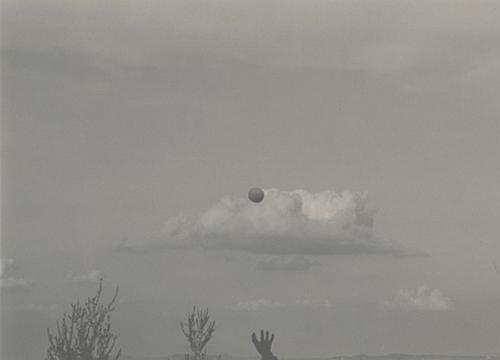
Masao Yamamoto
Masao Yamamoto - Photographic Haiku
Illiterate Magazine
Visual Haiku
photographs by
Masao Yamamoto
lens culture
_______________________
Complete Thomas Bernhard in English: A Checklist with Pictures
Scott Bryan Wilson
The Constant Conversation
from Walking
Thomas Bernhard
Translated from German by Kenneth Northcott
conjunctions
THERE IS A CONSTANT tug-of-war going on between all the possibilities of human thought and all the possibilities of a human mind's sensitivity, and between all the possibilities of human character.
Whereas, before Karrer went mad, I used to go walking with Oehler only on Wednesdays, now I go walking--now that Karrer has gone mad--with Oehler on Monday as well. ... If we hear something, says Oehler, on Wednesday we check what we have heard and we check what we have heard until we have to say that what we have heard is not true, what we have heard is a lie. If we see something, we check what we see until we are forced to say that what we are looking at is horrible. Thus throughout our lives we never escape from what is horrible and what is untrue, the lie, says Oehler. If we do something, we think about what we are doing until we are forced to say that it is something nasty, something low, something outrageous, what we are doing is something terribly hopeless and that what we are doing is in the nature of things obviously false. Thus every day becomes hell for us whether we like it or not, and what we think will, if we think about it, if we have the requisite coolness of intellect and acuity of intellect, always become something nasty, something low and superfluous which will depress us in the most shattering manner for the whole of our lives. For, everything that is thought is superfluous. Nature does not need thought, says Oehler, only human pride incessantly thinks into nature its thinking. ...(more)
_______________________

Carlos Cazalis
"I have always lived with the awareness of the impossibility of living. And what has made existence endurable
to me is my curiosity as to how I would get from one minute, one day, one year to the next"
-
Emile Cioran
.....................................................
On participatory engagement
text and photographs by Carlos Cazalis
Camera Obscura
In some ways as David Levi Strauss says in his book “Between the Eyes”, the action has already been taken and the viewer has no implication. The image has been perfectly composed, rendered, and colored but no longer allows us to get the full impact of the scandal.
If we look back on the events that have led to every major genocide we know of today, Armenia, Nazi Germany, Cambodia, Rwanda and Darfur we know they were all highly predictable and with ample evidence once they were occurring and to this day continue to be highly documented. However we seem to be less and less engaged with them and this is once again due to the repetitive nature of the overt use of the image that no longer affects us in our complicity. In Arturo Perez-Reverte’s “The Painter of Battles”, the main character, a self retired and renowned war photographer attempts to paint everything he couldn’t capture on film and to finish it, before one of his very own subject matters, from the war in the ex-Yugoslavia kills him for having exposed his life and endangered his family, eventually killed by enemy troops who recognized him on the cover of a magazine. John Berger of “A Painter of Our Time” similarly shared with us that Art is meaningless to those for whom life itself is merely a spectacle. Both authors are demanding that we no longer remain as mere on lookers justifying that we are only there to tell the story....(more)
_______________________
the sonic in the political and the social
blah-feme
The difficulties we face in coming to understand the sonic relation and its relation, in turn, with the social relation more broadly are symptomatic, I suggest, of a crisis in the imagination of the common. The key to thinking the sonic/social relation is obscured precisely because it is interdicted by the forces that seek to hold us in thrall to the charm of property. Without property, we have come to believe, we will be excluded from political representation, destined to dwell in the twilight of the amorphous proto-de-mos, without demand, without voice, without future. To answer the first question I raised above, then (how, that is do we constitute ourselves sonically?), it is in the process of attaching ourselves to an ideal scene of pastoral calm, the private imagined acoustically, that we think ourselves to be whole. It is not that we are all dreaming of a rural idyll, or seeking to live a life like Edward Carpenter’s glorious peasant isolation, but, rather, that we have come to identify with a certain sonic scene in which we have full control over the boundary between the inside and the outside....(more)
_______________________
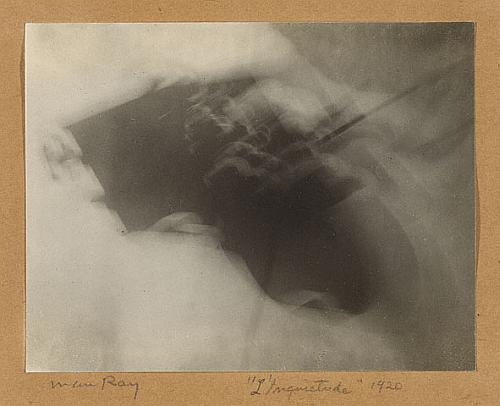
Anxiety
Man Ray
1920
_______________________
... notes on the aesthetics of decay
review of The Aesthetics of Decay
Aurelio Madrid
luctor et emergo
Revisiting "The Aesthetics of Decay"
Dylan Trigg
side effects
Interestingly, since 2006, the topic of decay has grown, now assimilated in a broader theoretical environment. Much of this leaves me cold and affirms what the book warns against: the Romantic appropriation of decay to fulfil a particular human need. This is as evident in the politics of decay as it is in the employment of decay in conjunction with the words “blackened,” “dark,” “Lovecraftian,” and “speculative” – all words that are in danger of becoming boring, interchangeable, and affixed to a gloss of sterile “beauty.” In each of these instances, decay has become fetishized by a co(s)mic vision decidedly remote from unromantic reality of physiological decay (Notably, somewhere [I cannot remember where] Schopenhauer warns us against aestheticising the world by spending time in a hospital). To be sure, while architectural decay certainly affords an “aesthetic distance,” enabling one to gaze toward the world from afar, the rot of the human body is of a different order. As a book, The Aesthetics of Decay is incapable of attending to this pressing human situation, which requires an altogether different approach where aesthetics plays no part.
Thus, Madrid is right to suggest that I want to stay clear of an “advocacy of ruins as places to be restored, adored & monumentalized.” It is precisely that veneration of decay that seems to be taking place in today’s philosophical landscape. And this is problematic for the reason that veneration confers a monumental quality to decay, and the philosophical value of decay is its resistance against representation and stasis. In concrete terms, this would mean conferring a value upon ruins in advance of experiencing them, so deploying them as token gestures of an already established aesthetic....(more)
The Aesthetics of Decay, Nothingness, Nostalgia, & the Absence of ReasonDylan Trigg google books
_______________________
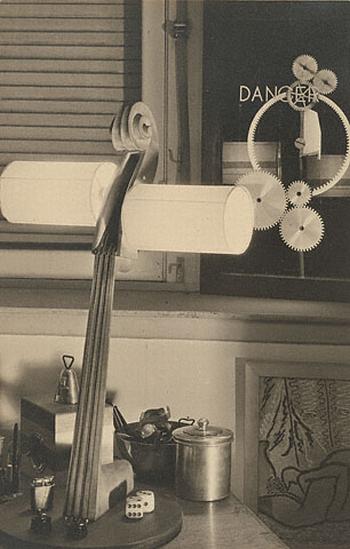
Still life for Nusch
Man Ray
1939 - 1940
_______________________
Season of art and poetry
Andrei Codrescu
The Villager
Quietly, quietly, the artworks and the poems and the stories keep being made in small towns and big towns and middle-sized ones, storms of beauty like butterflies migrating past one’s hoary head. You’d think that by now every wall in every house in the world would be covered by works of art and that there would be a stack of poems by every chair, being read dawn to dusk, loudly or to oneself, by lovers of words. But no, most walls are bare, sporting at best religious icons, and at worst mass-produced pictures from yard sales and Walmarts, and the people read the crawlers at the bottom of TV news and the thin newspapers with even thinner words and zero matter for reflection. People complain of excessive mediatization, of too much TV, too-loud advertising, too many sensationalistic news stories, but I don’t believe it. I think that a great big silence surrounds and suffuses us and that all the noise the world makes barely penetrates it, and that most people’s inner lives are muted craters gurgling forth only the loopy monotony of one’s own voice discussing misconnections and mortality in nonstop prose. And yet, over there, by the trees in the Vermont hills, lovely magical theater is being made for decades by the Bread & Puppet Theatre, and there by the Russian River, living for years in a house beneath the redwoods, poet Pan Nolan projects in lovely lines the issues of a consciousness intensely immersed in nature and irony, and a little up the ocean, in Prague, Vincent Farnsworth makes the cacophony of the band rehearsal next door into a manual for gracefully ageing, and just around the corner in Baton Rouge, Colleen Fava, burning sacrificially for art is reading Robert Musil in his wooly and unfinished entirety for the purpose of feeding her mind and pleasing her capricious teacher. So why is it, that all most people hear is their own lonely sorrow drowned in TV noise, and all they see is their insignificance barely kept at bay by shopping? The answer is that there are two devils: the Devil of Conformity who keeps us from seeing and hearing what artists make and thus condemns us to sterile solitude, and the Devil of Art and Joy who is fighting the Devil of Conformity as we speak. Today, in the deep laziness and profound tedium of summer, go out and buy an artwork and a book of poetry and keep it talismanically around, or take it with you into the waves. You must quit boring yourself.
_______________________
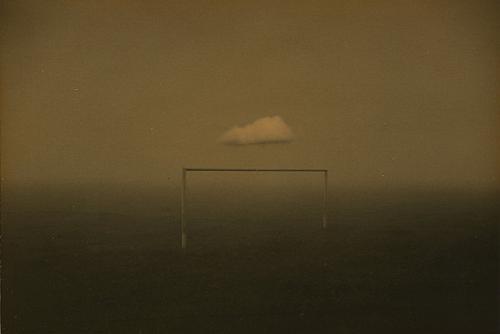
Masao Yamamoto
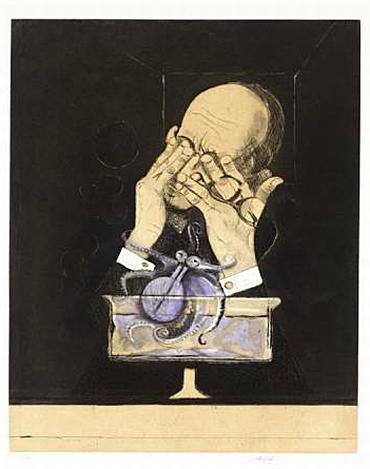
The Octopus
from The Bestiary or the Procession of Orpheus
1978-9 1978-9
Graham Sutherland
b. August 24, 1903
_______________________
Climate Change: Concocting the “Consensus”
Andrew Gavin Marshall
Global Research
The debate is over! There is a consensus! The time for discussion has ended and the need for action is paramount!
We have all heard this before.
Yet it is important to keep in mind that these types of statements are inherently inimical to scientific inquiry; the debate and discussion should never be over. As new information surfaces, it should be taken into consideration, analyzed, discussed, debated and ultimately it will aid in the advancement of knowledge and scientific understanding. To declare the debate as over is to declare information and knowledge as irrelevant. Progress has never come from holding onto antiquated ideas. The attainment of knowledge does not come from the refusal to reflect. Climate change is no exception. In light of events of the past year, it has become clear that there was a concerted effort on the part of a small clique of elite scientists at the UN and in supporting institutions, governments and universities to concoct the climate change “consensus” to pressure governments and public opinion into supporting the political, economic and social agenda of elites.
This article is a brief examination of the transformation of a political consensus into a scientific consensus, and thus we see that the scientific realm of inquiry and pursuit of knowledge and truth is not, itself, outside the influence of political, economic and social power structures. Indeed, science being a comparatively new concept in the human experience (roughly 350 years old) has historically been co-opted by entrenched elites to further their own interests and to strengthen their own power. The scientific technique becomes the elite technique; discovery becomes domination; knowledge becomes power; and truth becomes trite....(more)
_______________________
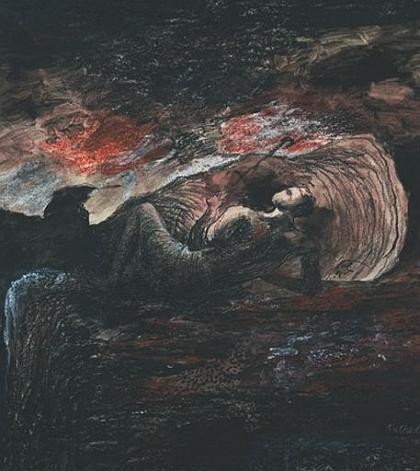
Miner Probing a Drill Hole
Graham Sutherland
1942
_______________________
Oiling the War Machine
from Crude: The Story of Oil by Sonia Shah. Seven Stories Press, 2004.
“The U.S. military consumes about 85 million barrels of oil a year, making it the biggest single consumer of fuel in the country and perhaps the world. Accordng to an interdisciplinary panel convened by the Defense Science Board (DSB ), cheap oil has distorted the American military into a handful of super-killing steel monsters, with the majority of the forces devoted to the logistics of simply feeding and fueling them.
“The Army employed sixty thousand soldiers solely for the purpose of providing petroleum, oil, and lubricants to its war machines, which have themselves become increasingly fuel-heavy. The sixty-eight-ton Abrams tank, for instance, burns through a gallon of fuel for every half mile. With its inefficient, 1960s-era engine, the Abrams tank burns twelve gallons of fuel an hour just idling.
“So much time and money is spent fueling the American fighting machines that, according to the head of the Army Materiel Command, a gallon of fuel delivered to the U.S. military in action can ultimately cost up to $400 a gallon. Indeed, 70 percent of the weight of all the soldiers, vehicles, and weapons of the entire U.S. Army is pure fuel.”
Climate and Capitalism
via Feral Scholar
_______________________
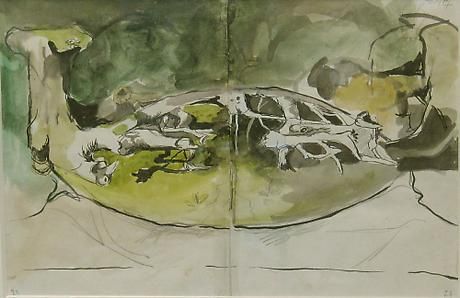
Form in an Estuary
Graham Sutherland
_______________________
The Art of Disappearing
Naomi Shihab Nye
When they say Don't I know you? say no.
When they invite you to the party
remember what parties are like
before answering.
Someone telling you in a loud voice
they once wrote a poem.
Greasy sausage balls on a paper plate.
Then reply.
If they say we should get together.
say why? It's not that you don't love them any more.
You're trying to remember something
too important to forget.
Trees.
The monastery bell at twilight.
Tell them you have a new project.
It will never be finished. When someone recognizes you in a grocery store
nod briefly and become a cabbage.
When someone you haven't seen in ten years
appears at the door,
don't start singing him all your new songs.
You will never catch up.
Walk around feeling like a leaf. Know you could tumble any second. Then decide what to do with your time.
Naomi Shihab Nye: A Bill Moyers Interview
Naomi Shihab Nye at The Poetry Foundation
Red suitcase: poems
Naomi Shihab Nye
google books
Fuel: poems
Naomi Shihab Nye
google books
Never in a hurry: essays on people and places
Naomi Shihab Nye
google books
This Same Sky: A Collection of Poems from Around the World
edited by Naomi Shihab Nye
google books
The flag of childhood: poems from the Middle East
edited by Naomi Shihab Nye
google books
_______________________
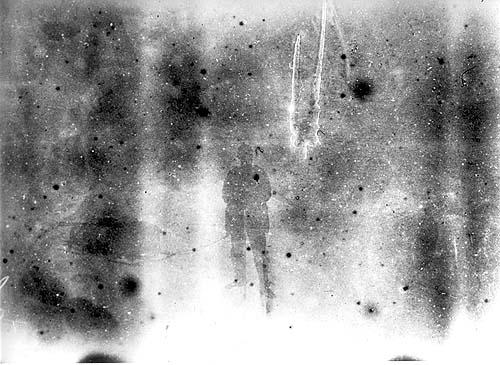
Andrée’s Arctic balloon expedition
1897
Grenna Museum
via Mrs. Deane
_______________________
Strike Me, Lightning
Bruce Andrews
jacket
A. 1.
Vibora!
Show-off!
catechetical [cathechismal]
gold placebo
star milk, Milky Way
practice modesty of the eyes
dreamy idolatry
Ocean of Colors
outside of time
none of my loving
vida
encaressed
divertida
magic lantern captivity
Please destroy this letter
A. 2.
Let the night have its way with you
vicarious
in blind circling
white incendiary adoration disguise
& cast a spell
the common mantle of night
following me around like a pair of scissors
property of dispossessed daughters of Eve
inanimate unloved
to memorize
albino shadows
curfew bells
lunar eclipse
the bitter pill
back to the straight & narrow
...(more)
Bruce Andrews at PennSound and EPC.....................................................
trained listener (PoemTalk #35)
Tan Lin, Chris Funkhouser, Sarah Dowling and Al Filreis on Bruce Andrews Moebius _______________________
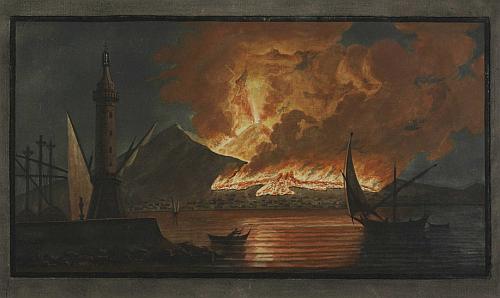
Eruption on Mt. Vesuvius
1767 October 20
Pietro Fabris
Campi Phlegraei
Observations on the Volcanos of the Two Sicilies
1776
Claremont Colleges Digital Library
via bibliodyssey
_______________________
Negotiations with a Volcano
Naomi Shihab Nye
We will call you "Agua" like the rivers and cool jugs.
We will persuade the clouds to nestle around your neck
so you may sleep late.
We would be happy if you slept forever.
We will tend the slopes we plant, singing the songs
our grandfathers taught us before we inherited their fear.
We will try not to argue among ourselves.
When the widow demands extra flour, we will provide it,
remembering the smell of incense on the day of our Lord.
Please think of us as we are, tiny, with skins that burn easily.
Please notice how we have watered the shrubs around our houses
and transplanted the peppers into neat tin cans.
Forgive any anger we feel toward the earth,
when the rains do not come, or they come too much,
and swallow our corn.
It is not easy to be this small and live in your shadow.
Often while we are eating our evening meal
you cross our rooms like a thief,
touching first the radio and then the loom.
Later our dreams begin catching fire around the edges,
they burn like paper, we wake with our hands full of ash.
How can we live like this?
We need to wake and find our shelves intact,
our children slumbering in their quilts.
We need dreams the shape of lakes,
with mornings in them thick as fish.
Shade us while we cast and hook—
but nothing else, nothing else.
via Marya at African Alchemy
_______________________
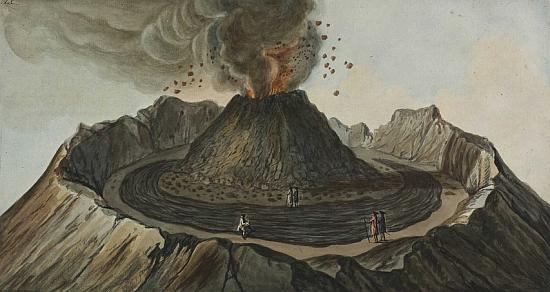
Crater of Mt. Vesuvius
Pietro Fabris
Campi Phlegraei
_______________________
Confronting Images
Questioning the Ends of a Certain History of Art
Georges Didi-Huberman
Translated by John Goodman
mediafire pdf - via aaaaarg
Often, when we pose our gaze to an art image,* we have a forthright sensation of paradox. What reaches us immediately and straightaway is marked with trouble, like a self-evidence that is somehow obscure.† Whereas what initially seemed clear and distinct is, we soon realize, the result of a long detour—a mediation, a usage of words. Perfectly banal, in the end, this paradox. We can embrace it, let ourselves be carried away by it; we can even experience a kind of jouissance upon feeling ourselves alternately enslaved and liberated by this braid of knowledge and not-knowledge, of universality and singularity, of things that elicit naming and things that leave us gaping. . . . All this on one and the same surface of a picture or sculpture, where nothing has been hidden, where everything before us has been, simply, presented
We can, conversely, feel dissatisfied with such a paradox. Want not to let things lie, want to know more, want to represent to ourselves in a more intelligible way what the image before us still seemed to hide within it. We might then turn toward the discourse that proclaims itself a knowledge about art, an archeology of things forgotten or unnoticed in works of art since their creation, however old or however recent they might be. This discipline, whose status thus can be summed up as offering specific knowledge of the art object, this discipline is as we know called the history of art. Its invention was quite recent, by comparison with the invention of its object: we might say, taking Lascaux as our reference point, that it postdates art itself by roughly one hundred sixty-five centuries, of which ten or so were filled with intense artistic activity solely within the framework of the western Christian world. But the history of art gives the impression that it has made up for all this lost time. It has examined, catalogued, and interpreted countless objects. It has accumulated stupefying amounts of information and has taken over management of an exhaustive knowledge of what we like to call our patrimony.
The history of art presents itself, in fact, as an enterprise ever more victorious. It answers needs, it becomes indispensable. As an academic discipline, it never stops refining itself and producing new information: thanks to which there is of course a gain in knowledge. As an authority for the organization of museums and art exhibitions, it likewise never stops expanding its horizons: it stages gigantic gatherings of objects: thanks to which there is a gain in spectacle. Finally, this history has become the cogwheel and guarantor of an art market that never stops outbidding itself: thanks to which people make money. It seems as though the three charms or three ‘‘gains’’ in question have become as precious to the contemporary bourgeoisie as health. Should we be surprised, then, to see the art historian take on the features of a medical specialist who addresses his patients with the statutory authority of a subject supposed to know everything in the matter of art? Yes, we should be surprised. ... _______________________

The Mouse
from The Bestiary or the Procession of Orpheus
1978-9
Graham Sutherland
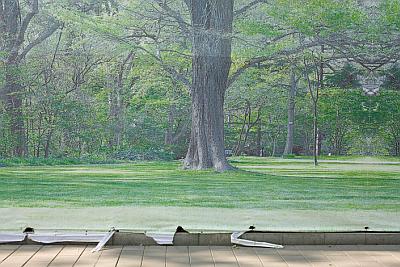
Simple Present
Beijing
Bert Danckaert
_______________________
Lyric, the Novel, Excess
Josh Corey
Miramare
Because the novel insists on worlding but is primarily an event in language. An event that wants to mask itself. The overwhelming insistence of the mimetic: I’m not strong enough to keep it at bay without some formal constraint. And I don’t want to exclude the mimetic: there are real people and events I’m trying to translate into a communicable register, most of all my mother and the seductions of an imaginary assimilated past. But I want to roughen its grain, to make the labor of mimesis palpable, to enlist the reader in image- / memory-making.
It’s a question of excess, finally. Elizabeth Willis says that the aim of the lyric poem “is to point outside any accountable meaning, to provoke the reception of an excess of meaning” (in her essay “The Arena in the Garden: Thoughts on Late Lyric” in Wallace and Marks, eds., Telling It Slant: Avant-Garde Poetics of the 1990s). Excess of meaning is the mark of authenticity for me in literature, or rather the mark of the Real. That sense of overflowing the bounds of mimesis and of ordinary speech, accessible in fiction through the hyperproliferation of signifiers (Joyce) or radical poverty of the same (Beckett). There are parallels here to Bakhtin’s theory of the novel as heteroglossia, competing discourses, so that no master monoglossic narrative can emerge (Bolaño’s 2666 stunned me into recognizing how this can be performed on a structural level and not merely a characterological one)....(more)
Josh Corey is blogging his novel in progress - Miramare
_______________________
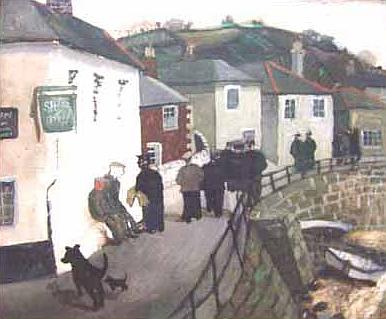
Ship Inn
Mousehole
1930
Christopher Wood
d. August 21, 1930
_______________________
The Hexagon of the Conquest
Dagoberto Gilb
The Barcelona Review
(....)
... I looked, and I read with him, until suddenly I was initiated: I forgot where I was once I found a book on my own. We probably looked at it together, maybe or maybe not, because I only remember the book, which was about the Seven Ancient Wonders of the World.
Just think of them, or better said, the drawings of them in a children's book. The Pyramid at Giza, that obvious one of power, already as famous as the country of Egypt where there was the Sphinx too. The Hanging Gardens of Babylon was so much more to me because we heard in school so much about the "fertile crescent," the rich dark land between the Tigris and Euphrates Rivers, where these walls and terraces held and nourished fruit and flowers that grew on them like ivy. There was Zeus in Olympus. a godman made of gold, so big his head bumped the ceiling when he took this indoor throne. There was the Colossus of Rhodes on the Mediterranean, his feet planted on two land masses so that boats would have to go under him like a bridge. There were two in Turkey—the Temple of Artemis, who was the mother goddess of the wilderness, guarding the wild animals and nature, and the Tomb of Halicarnassus, which maybe was only another version of a pyramid, but to me was more a monument to death, the Big Grave.
That counts six. It's that I remembered number seven wrong. The correct number seven was the Lighthouse of Alexandria. Even now, to me, this one seems off. It wasn't as tall as Giza or the Colossus, it wasn't golden, it wasn't an attraction to all or most or certain beautiful birds of the Western world—not one extra detail that would cause the imagination to dwell on its image or meaning. Bright as its light might be, important as I am sure it was for navigation, it was only practical. And so it was nothing like what I remembered, wrongly, as number seven, which was the Library of Alexandria. Could have been that these were so close, both with an "L of." I was so sure too, I couldn't believe it when I looked it up. But I say—still say—it has to be like number eight, no less than in the top 10! Doesn't it have to be? It was the library that collected all the knowledge combined of both the Greeks and the Egyptians, it held the library of Aristotle himself. That is, it was the symbol of knowledge, of its collection, of what a library is and does. And it was lost. Lost by Julius Caesar, the Roman conqueror, when he chased his rival Pompey and, in pursuing him, burned the Library of Alexandria down (accidentally, the story has it), and with it, or so it would seem, the oldest papyrus scrolls that were there, estimated to be somewhere between 400,000 to 700,000. That's as though ancient history, knowledge, and wisdom itself were burned and it all had to start over. ...(more)
_______________________
 Bad Behaviour in Medieval and Early Modern Europe
Skepsi
Volume III, Issue 1, Summer 2010
School of European Culture and Languages at the University of Kent
The Role of Ecclesiastical Stairs, Galleries and Upper Spaces in Medieval ‘Bad Behaviour’ [pdf]
Toby J. Huitson
_______________________
The Caption Poet and Inquiries into Resizable Monuments
Ariel Goldberg
jacket 40
It is our historic responsibility not only to produce photos, but to make them speak.
-
Ariella Azoullay, The Civil Contract of Photography
(....)
... To define the news is an insatiable practice: the industry churns inescapably; the banality nudges against tales of atrocity; the public space gets mangled in its private receptions.
I am fixated on the still photograph in the news, meaning someone was sent to take it or already there to take it. Like finding the part in a thick head of hair, I am separating this photograph from the advertisement, which bombards the majority of the spreads, blinks around borders to tease visibility in overlapping windows.
Looking at photographs in the news carries with it the weight of questions that become (en)listed even after looking at just one photograph. Looking at photographs in the news, for me, is a barrage of questions about origin stories built on murky and cacophonous uncertainties. These questions articulate themselves against a backdrop of rushing through a dark path and not knowing where you are going and how long it will take to get there.
These questions are how photographs speak on their own, and they do powerfully, as interlocutors trapped in another time/space than their viewer/reader. Our attempts to make photographs speak vacillate between subordinate and intrusive.
Carrying these questions of photographs around is as heavy as carrying camera equipment.
...(more)
Ariel Goldberg_______________________

school children in 1899
viewing the first bison at the National Zoological Park
Frances Benjamin Johnston
1864-1952
Smithsonian Archives
_______________________
MiPOesias (September 2010)
_______________________
two²
Blue Print Review - 25
edited by Dorothee Lang
via tasting rhubarb
_______________________
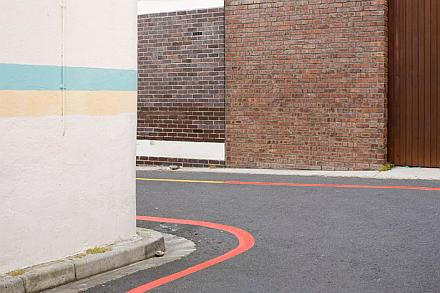
Capetown
Bert Danckaert
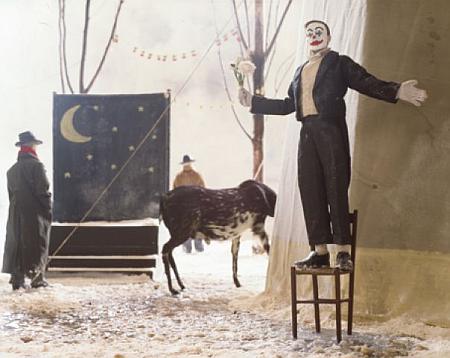
Winter Stories
Paolo Ventura 1 2
The Invented Worlds of Paolo Ventura
Paolo Ventura interviewed at The F STOP
_______________________
The Poet and the Politician
Salvatore Quasimodo
Nobel Lecture, December 11, 1959
(....)The poet's language must be given its proper emphasis. It is neither the language of the Parnassians, nor that of the linguistic revolutionaries, particularly in countries where contamination by dialects only produces additional doubts and literary hieroglyphs. Indeed, philologists will never revive a written language. This is a right which belongs exclusively to the poet. His language is difficult not because of philological reasons or spiritual obscurity, but because of its content. Poets can be translated; men of letters cannot, because they use intellectual skills to copy other poets' techniques and support Symbolism or Decadence for their very lack of content, for their derivative thought, for the truths on which they have been theoretically nourished when they are found to resemble Goethe or the great nineteenth-century French poets. A poet clings to his own tradition and avoids internationalism. Men of letters think of Europe or even of the whole world in the light of a poetics that isolates itself, as if poetry were an identical "object" all over the world. Then, with this understanding of poetics, formalistic men of letters may prefer certain kinds of content and violently reject others. But the problem on either side of the barricade is always content. Thus, the poet's word is beginning to strike forcefully upon the hearts of all men, while absolute men of letters think that they alone live in the real world. According to them, the poet is confined to the provinces with his mouth broken on his own syllabic trapeze. The politician takes advantage of the men of letters who do not assume a contemporary spiritual position, but rather one that has been outdated by at least two generations. Out of cultural unity he makes a game of sophisticated, turbulent decomposition wherein the religious forces can still press for the enslavement of man's intelligence.
Religious poetry, civic poetry, lyric or dramatic poetry are all categories of man's expression which are valid only if the endorsement of formal content is valid. It is a mistake to believe that a spiritual conquest, a particular emotional situation (a religious state) of the individual, can become "society" by extension. Pious abnegation, the renunciation of man by man, is nothing but a formula for death. The truly creative spirit always falls into the claws of wolves. The poet's spoken discourse often depends on a mystique, on the spiritual freedom that finds itself enslaved on earth. He terrifies his interlocutor (his shadow, an object to be disciplined) with images of physical decomposition, with complacent analyses of the horrid. The poet does not fear death, not because he believes in the fantasy of heroes, but because death constantly visits his thoughts and is thus an image of a serene dialogue. In opposition to this detachment, he finds an image of man which contains within itself man's dreams, man's illness, man's redemption from the misery of poverty - poverty which can no longer be for him a sign of the acceptance of life....(more)
.....................................................
Everyone stands alone at the heart of the world pierced by a ray of sunlight, and suddenly it is evening.
-
Salvatore Quasimodo
- 
Salvatore Quasimodo
b. August 20, 1901
Salvatore Quasimodo
—in translation by Anny Ballardini
eratio .....................................................
To My Father
Salvatore Quasimodo
translated by ?
Where Messina lay
violet upon the waters, among the mangled wires
and rubble, you walk along the rails
and switches in your islanders'
cock-of-the-walk beret. For three days now,
the earthquake boils, it's hurricane December
and a poisoned sea. Our nights fall
into the freight cars; we, young livestock,
count our dusty dreams with the dead
crushed by iron, munching almonds
and apples dried in garlands. The science
of pain put truth and blades into our games
on the lowlands of yellow malaria
and tertian fever swollen with mud.
Your patience, sand and delicate,
robbed us of fear,
a lesson of days linked to the death
we had betrayed, to the scorn of the thieves
seized among the debris, and executed in the dark
by the firing squads of the landing parties, a tally
of low numbers adding up exact
concentric, a scale of future life.
Back and forth your sun cap moved
in the little space they always left you.
For me, too, everything was measured
and I have borne your name
a little beyond the hatred and the envy.
That red on your cap was a mitre;
a crown with eagle's wings.
and now in the eagle of your ninety years
I wanted to speak to you -- your parting
signals coloured by the night-time lantern --
to speak to you from this imperfect
wheel of a world,
within a flood of crowded walls,
far from the Arabian jasmine
where you are still, to tell you
what once I could not -- difficult
affinity of thoughts -- to tell you (not only
the marshland locust, the mstic tree can hear)
as the watchman of the fields tells his master:
'I kiss your hands.' This, nothing else.
Life is darkly strong.
_______________________
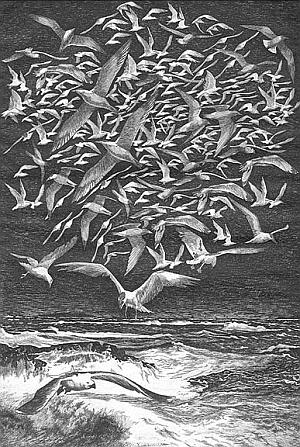
Stig Åsberg
(1909-1968)
_______________________
Three new Ekelöf translations
Steven Fowler
The silence of the yawning night is vast
It is not concerned by the scrabbling of human beings
who eat each other upon the shoreline
And I can hear
the glorious watersound
from ships who sail
upon the sea out there
These ships, are they truly so naive?
Sometimes I hear from out there the drawn howls
as though... as though...
- from Strountes (Nonsense) 1955
A miracle working icon: the poetry of Gunnar Ekelöf Steven Fowler nthposition
Introduction to 10 Posthumous Poems by Gunnar Ekelöf
1907 - 1968
Robin Fulton
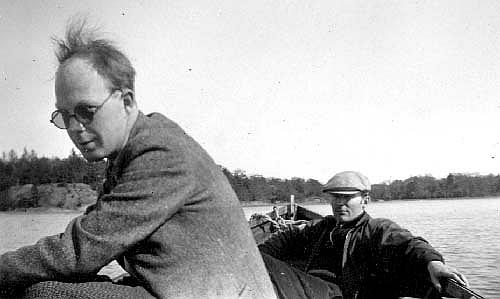
Gunnar Ekelöf and Stig Åsberg
in Pålsundet Mörkö in the 1930s
_______________________
101.(2) Each fragment of memory that I'll extirpate from time...(at) once will evaporate...
Once set down on paper, each fragment of memory (that is, a sequence of recollections put together like a textbook excercise or an elucidation for my book (a moralized prose recollection) becomes, in fact, inaccessible to me. This probably doesn't mean that the record of memory, located under my skull, in the neurons, has disappeared, but everything happens as is a transference had occurred, something in the nature of a translation, with the result that ever since, the words composing the black lines of my transcriptions interpose themselves between the record of memory and myself, and in the long run completely supplant it. - Jacques Roubaud, The Great Fire of London, translated by Dominic Di Bernardi
_______________________
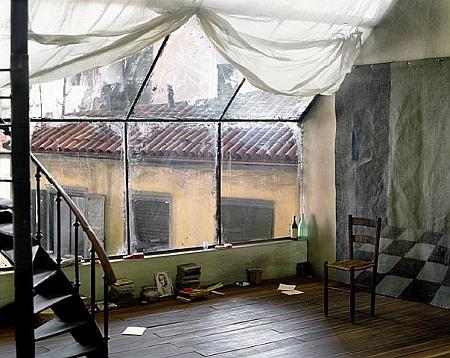
Paolo Ventura
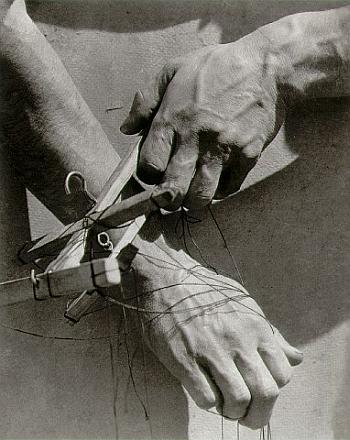
Hands of the puppeteer
Tina Modotti
1929
_______________________
Voluptuous Viractualism
Hermaphroditic Codes, Robotic Art and Immersive Excess
Joseph Nechvatal
ctheory
Concerning this viractual span of liminality, I am reminded of two very different, yet complementary, concepts: entrainment and égréore. Entrainment, in electro-physics, is the coupling of two or more oscillators as they lock into a commonly sensed interacting frequency. In alchemical terms an égréore (an old form of the word agréger) is a third concept or phenomenon which is established from conjoining two different elements together. I suggest that the term (concept) viractual (and viractuality) may be a concordant entrainment/égréore conception helpful in defining our now third-fused inter-spatiality which is forged from the meeting of the virtual and the actual-a concept close to what the military call augmented reality that is the use of transparent displays worn as see-through glasses on which computer data is projected and layered. A lacunae world of incessant transmutation has emerged and established a seemingly unrestricted area of abundance which I call the viractual. ...(more)
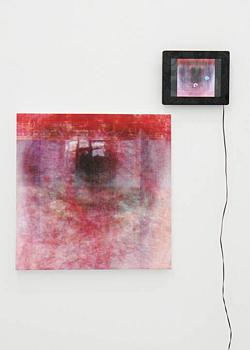
Retinal Art Revisited: Story of the Eye
Joseph Nechvatal
September 4 - 29th, 2010
Galerie Jean-Luc & Takako Richard
Paris
Introduction to:Immersive Ideals / Critical Distances
A Study of the Affinity Between Artistic Ideologies Based in Virtual Reality and Previous Immersive Idioms
Joseph Nechvatal's Ph.D. dissertation _______________________
Three Poems
Nancy Kuhl
conjunctions
Network, Constellation
Nancy Kuhl
screenlit and glowing word
by slippery word the toothy
demands tiresome flicker and all
this simulation this lexicon falling
flat pleading won’t you without
a trace of cheekbone or ribcage
please and please and please and no
memory of a body’s creased heat
metallic shiver marching the spine
every consequence rendered blank
and blinking or bound and
scripted almost routine steady
to the end out of sight saying
I want and I want more of everything
illuminated page tedious marks
the sender is echo echo and
our distant secrets constellate
radiant like cold-night far-flung
stars white and always heatless
Nancy Kuhl, The Wife Of The Left Handand Suspendspdbooks
Beyond Perfect-Bound
Is it time to expand our idea of the poetry book?
Jen Bervin and Nancy Kuhl Interviewed by Andrew Mauzey and Michael Dinsmoor
_______________________
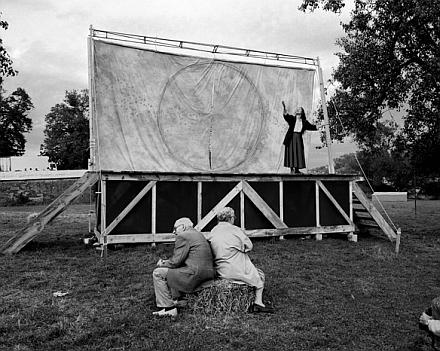
Modèle Français
Jean-Marc Bodson
Soyons.net
_______________________
If every second of our lives recurs an infinite number of times, we are nailed to eternity as Jesus Christ was nailed to the cross. It is a terrifying prospect. In the world of eternal return the weight of unbearable responsibility lies heavy on every move we make. That is why Nietzsche called the idea of eternal return the heaviest of burdens(das schwerste Gewicht).
If eternal return is the heaviest of burdens, then our lives can stand out against it in all their splendid lightness.
But is heaviness truly deplorable and lightness splendid?
The heaviest of burdens crushes us, we sink beneath it, it pins us to the ground. But in the love poetry of every age, the woman longs to be weighed down by the man's body. The heaviest of burdens is therefore simultaneously an image of life's most intense fulfillment. The heavier the burden, the closer our lives come to the earth, the more real and truthful they become.
Conversely, the absolute absence of a burden causes man to be lighter than air, to soar into the heights, take leave of the earth and his earthly being, and become only half real, his movements as free as they are insignificant.
What then shall we choose? Weight or lightness?
-
Milan Kundera, The Unbearable Lightness of Being, translated by Michael Henry Heim
ifile pdf - via aaaaarg
_______________________
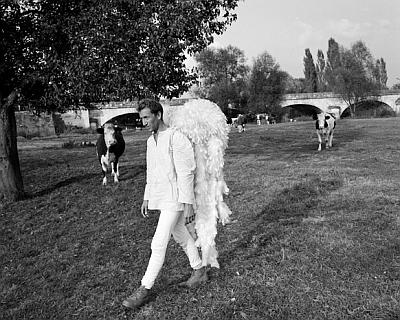
Jean-Marc Bodson
_______________________
Notation And The Art Of Reading
Karl Young
The idea of notation implies, if not demands, performance. Virtually any form of writing is a kind of notation and any form of reading is a type of performance. Poetry is an intensely physical art, one that activates several senses at once. In aural societies poetry has traditionally been accompanied by facial movement, gesture, manipulation of symbolic objects, the drawing and painting of figures, the wearing of costumes, etc. -- all of which, in a tribal context, are read. Poetry still is a physical art using multiple senses: the body as a whole equals or sometimes replaces the voice in performance art, and even silent readers turn pages, move their heads, their eyes, the roots of their tongues if not their tongues and lips, and so forth.
The kinesthetic link between sight, sound, and speech is mirrored by an inner speech, inner sight, and inner sound. Our thoughts are a combination of inner sight and inner speech. With this inner kinesthesia, we name things as we see them and form images of things about which we hear. Poetry, whether it is heard or seen, stimulates these inner sensations. An Anglo-Saxon warrior listening to a performance of Beowulf in the near darkness of a meadhall would not only be able to see dragons in the flickering coals of the fire, his mind would be filled with images generated by the words he heard. In like manner, a contemporary reader reading silently (provided she or he hasn't been hampered by speedreading practices) will hear an inner voice, which may call up inner sight. A great deal has been written about the "image" in poetry throughout this century. When that term is used it seldom refers to anything that can be seen on the page, but rather the inner vision of the reader.
In the mainstream culture of the western world in the twentieth century, reading becomes an ever more ephemeral, dephysicalized act. At the same time contemporary poets work against this tendency, rediscovering reading methods from other cultures and discovering new ones on their own. Though for most people reading becomes more and more a system of simple data transference, poets attempt to find alternative notations and to expand the range of their performance. In this essay I will give examples of how poetry was read in three cultural contexts removed from ours in culture and time, and then describe some forms of notation in contemporary poetry and how they can be read. ...(more)
_______________________
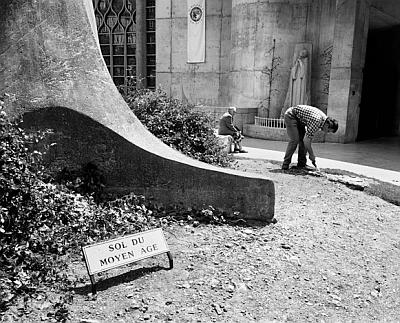
Jean-Marc Bodson
_______________________
towards a foreign likeness bent: translation
duration press
contributors: Ammiel Alcalay, Charles Bernstein, Norma Cole, Marcella Durand, Forrest Gander, Bill Marsh, Sawako Nakayasu, Kristin Prevallet, Ryoko Sekiguchi, Jonathan Skinner, Rick Snyder, Jalal Toufic, Keith Waldrop, Rosmarie Waldrop, Chet Wiener
from
Nines and tens : a talk on translation
Norma Cole
The translation never takes place since the texts have nothing in common. The words are all different.
Leap of faith.
Transcendence or encounter.
A record of the encounter. What is hidden and common to both.
Nine nights. Ten nights.
Nine, nones, the prayer offered at the ninth hour, the Latin nona hora; origin of noon. Nonariae (in ancient
Rome, prostitutes were called nonariae because their doors opened at nine).
Ten, a tithe, based on the ancient Jewish form adopted by both Christians and Romans, a tenth part of the
harvest, decimus, what was due. Decimate meant exacting punishment from every tenth man in the legion.
In Bugali, New Guinea, the “number word” is the word for a specific body part. The body part becomes
conventionalized as the number’s name: nine, ngama, left breast. Ten, dala, right breast. For Torres Strait
Islanders, nine is sternum, ten left shoulder. In Papua, New Guinea, nine is right ear, ten right eye. Paraguay:
nine, arrived at the other hand, two sides alike. Ten, finished, the hands. In the Zuni language, nine is ten-ali-
k’ya, all but one held up with the rest. Ten is äs-tem-‘thla, all of the fingers.
The nine is imprisoned in the ten. The ten is implied by the nine.
There is red in the pink and they are distinct.
What, if anything, is the poem assuming? Supposing? Besides the words themselves, what could there be?
In a received world, the sign itself is nothing. Retrieve a morsel and build a mean around it. You mean steal,
but steal what, Prometheus? This then is the crime. It has its suspense. To some extent, or in a certain way,
we are all one-trick ponies. We do what we can.
We did what we could.
We did that which we have could. (Fr.)
We have done what we could done. (Ger.)
It casts back difference, the shadow you are walking in. You attempt to draw a dotted line around that
shadow, an outline.
An outside.
An aside. There is a local painter who appropriates shapes from popular culture, from, say, magazine ads.
The shapes are often of women, “heavily coded.” The artist then has friends, other artists, perhaps, assume
these positions. The artist will then use these new images, these translations. What could these translations
say about the originals? If the viewer a) is, b) is not, fluent in the original language.
“translate to keep the damage.”
Present what it is in the way of presenting what is not.
Make a shape around that by what is. Mirror to it its worst nightmare.
(....)
_______________________
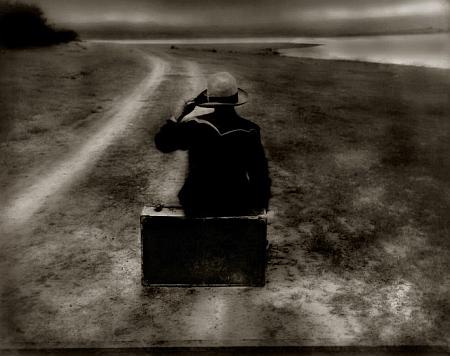
Jack Spencer
1 2 3
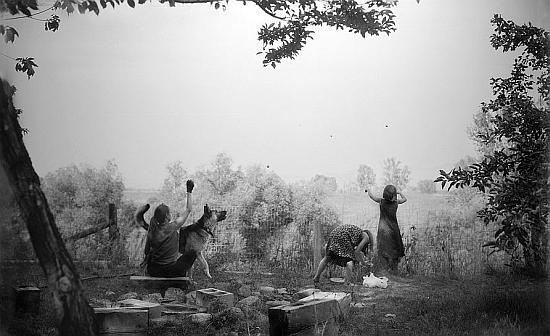
Deer Apples
Summer 2003
Raymond Meeks
more
via Tim Atherton
_______________________
Because of my tiredness, the thousands of unconnected happenings all about me arranged themselves into an order that was more than form; each one entered into me as the precisely fitting part of a finely attuned, light-textured story; and its events told themselves without the mediation of words. Thanks to my tiredness, the world cast off its names and became great. I have rough picture of four possible attitudes of my linguistic self to the world: in the first, I am mute, cruelly excluded from events; in the second, the confusion of voices, of talk, passes from outside into my inner self, though I am still as mute as before, capable at the most of screaming; in the third, finally, life enters into me by beginning spontaneously, sentence for sentence, to tell stories, usually to a definite person, a child, a friend; and finally, in the fourth, which I experienced most lastingly in that day's clear-sighted tiredness, the world tells its own story without words, in utter silence, to me as well as to that gray-haired onlooker over there and to that magnificent woman who is striding by; all peaceable happening was itself a story, and unlike wars and battles, which need a poet or a chronicler before they can take shape, these stories shaped themselves in my tired eyes into an epic and, moreover, as then became apparent to me, an ideal epic. The images of the fugitive world meshed one with another, and took form.
- Peter Handke, Essay on Tiredness
quoted by Stephen Mitchelmore in A vast horizon of tiredness
This Space
_______________________
Too wired to concentrate
Mark Fisher
k-punk
The "twitchy, agitated interpassivity" I describe - from which I'm far from being exempt myself - it is what Linda Stone calls "continuous partial attention" It's not a simple matter of opposing pleasure to duty. As digital addicts we are much like Matt Dillon's junkie in Drugstore Cowboy, "working harder than a construction worker on overtime". The constant craving to be connected, or to click through to the next link, or to check to see if mail has arrived, is intensely demanding: cyberspace is a hard taskmaster, and one that is never satisfied (and which, similarly, leaves us feeling dissatisfied any drained). Increasingly, I find reading books to be a refuge from digital twitch, and, in that way, more enjoyable - than ever. (That's one reason that I greet the rise of ebooks with something of a shudder.) (....)
I know that I would be more productive (and less twitchily dissatisfied) if I could partially withdraw from cyberspace , where much of my activitity - or rather interpassivity - involves opening up multiple windows and pathetically cycling through twitter and email for updates, like a lab rat waiting for another hit. (The rat analogy is not idle: there's an argument that rats become more quickly addicted when they are given stimuli randomly; email is similarly random, sometimes providing massive satisfaction, often thin pickings.) The same goes for politics - a politics entirely contained within cyberspace would be locked into its interpassive circuits; but a politics that cannot make cyberspace one of its crucial terrains would be useless. .....................................................
Beyond Simple Multi-Tasking: Continuous Partial Attention
Linda Stone
_______________________
The Face and Technology
Transformations
Issue No. 18 2010
Faces, Interfaces, Screens: Relational Ontologies of Framing, Attention and Distraction
Ingrid Richardson
_______________________
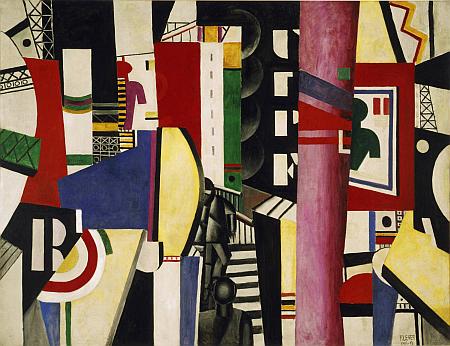
The City
1919
Fernand Léger
d. August 17, 1955
_______________________
Metropoles
7 | 2010
La nouvelle critique urbaine
En hommage à Bernard Jouve
Community, cooperation and metropolitan democracy
Philip Booth
_______________________
Axess: When the City has Triumphed
No. 4 2010
City and country hand in hand
Stig-Björn Ljunggren
Axess
Sweden is regionalising. Central power is caving in; we are developing from a monocentric into a multicentric state. Second, we have the city-country dimension.
We are in the midst of a leap in urbanisation. The question is what will remain of the country when the city finally wins out. And whether the Swedish town can really be that amalgamation we associate with words like “city” or “metropolis”, and which we increasingly associate with “globalisation” because development is characterised primarily by growing gigantic clusters and development corridors, not by people no longer having to show their passport at borders. Instead, demands to show identification at border crossings have increased with even fingerprint and electronic body searches being introduced, in addition to the large number of routine requests for ID.
“Urbanisation” is a better word than “globalisation” for how the world is developing. Third, we have the centre-periphery dimension.
The centre stands for power and authority, for control and the setting of norms, while the periphery stands for object and subordination, for controlled and disciplined. Power relations can involve either our own subjective sense or an objective, observable relation. Some people think they are at the centre of power, like the undecided voter who watches a debate between party leaders shortly before election day, whereas we are really just electing which people will carry out the basics of politics. Or the opposite – others feel marginalised, based on the theme “politicians squabble and no one ever listens”, although they actually belong to the group of voters that can affect an election by a simple act of voting, where perhaps 100,000 votes are enough to change the bloc of parties in government.
So centre and periphery are obviously not geographic relations, but instead involve inherent social structures – rather like demons in people’s minds....(more)
_______________________
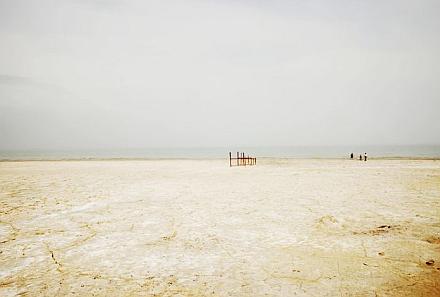
Carolyn Drake
_______________________
To the Harbormaster
Frank O'Hara
I wanted to be sure to reach you;
though my ship was on the way it got caught
in some moorings. I am always tying up
and then deciding to depart. In storms and
at sunset, with the metallic coils of the tide
around my fathomless arms, I am unable
to understand the forms of my vanity
or I am hard alee with my Polish rudder
in my hand and the sun sinking. To
you I offer my hull and the tattered cordage
of my will. The terrible channels where
the wind drives me against the brown lips
of the reeds are not all behind me. Yet
I trust the sanity of my vessel; and
if it sinks, it may well be in answer
to the reasoning of the eternal voices,
the waves which have kept me from reaching you.
_______________________
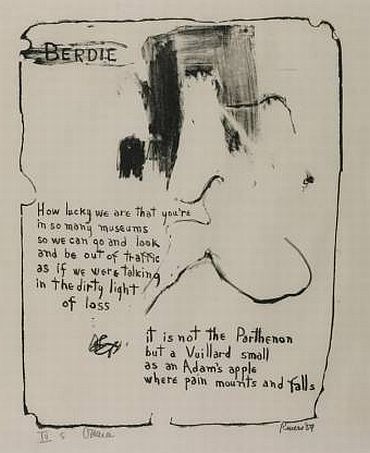
from Stones
Larry Rivers
b. August 17, 1923
Frank O'Hara
1923-2002
In Memory of My Feelings: Frank O'Hara and American Art
Russell Ferguson
jacket
_______________________
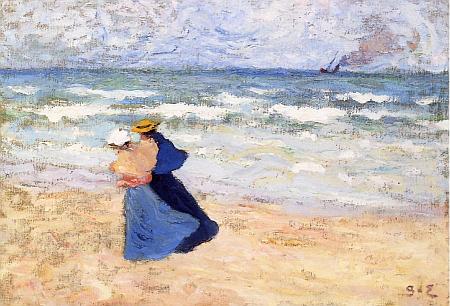
Promenade by the Sea
1896
Georges d'Espagnat
1870-1950
_______________________
In Memory of My Feelings
Frank O'Hara
(....)
So many of my transparencies could not resist the race!
Terror in earth, dried mushrooms, pink feathers, tickets,
a flaking moon drifting across the muddied teeth,
the imperceptible moan of covered breathing,
love of the serpent!
I am underneath its leaves as the hunter crackles and pants
and bursts, as the barrage balloon drifts behind a cloud
and animal death whips out its flashlight,
whistling
and slipping the glove off the trigger hand. The serpent's eyes
redden at sight of those thorny fingernails, he is so smooth!
My transparent selves
flail about like vipers in a pail, writhing and hissing
without panic, with a certain justice of response
and presently the aquiline serpent comes to resemble the Medusa.
...(more)
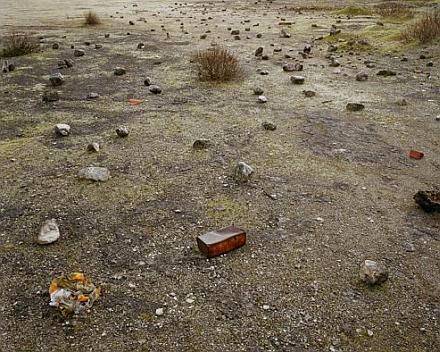
Thermopylae 480BC
The Death of Leonidas
The Course of History
Bart Michiels
_______________________
The Madness of the Day
Maurice Blanchot
trans. Lydia Davis
scribd
I am not learned; I am not ignorant. I have known joys. That is saying too little: I am alive, and this life gives me the greatest pleasure. And what about death? When I die (perhaps any minute now), I will feel immense pleasure. I am not talking about the foretaste of death, which is stale and often disagreeable. Suffering dulls the senses. But this is the remarkable truth, and I am sure of it: I experience boundless pleasure in living, and I will take boundless satisfaction in dying.
I have wandered: I have gone from place to place. I have stayed in one place, lived in a single room. I have been poor, then richer, then poorer than many people. As a child I had great passions, and everything I wanted was given to me. My childhood has disappeared, my youth his behind me. It doesn't matter. I am happy about what has been. I am pleased by what is, and what is to come suits me well enough.
Is my life better than other peoples lives? Perhaps. I have a roof over my head and many do not. I do not have leprosy, I am not blind, I see the world—what extraordinary happiness! I see this day, and outside it there is nothing. Who could take that away from me? And when this day fades, I will fade along with it—a thought, a certainty, that enraptures me.
I have loved people. I have lost them. I went mad when that blow struck me, because it is hell. But there was no witness to my madness, my frenzy was not evident: only my innermost being was mad. Sometimes I became enraged. People would say to me, Why are you so calm? But I was scorched from head to foot; at night I would run through the streets and howl; during the day I would work calmly....(more)
Maurice Blanchot [pdf] Ullrich Haase and William Large Routledge Critical Thinkers
Higher Intellect
server hosting a searchable database of over 250,000 text files on a variety of subjects.
_______________________
Poemas del río Wang
a review / tribute by Giovanni Tiso
Bat, Bean, Beam - A Weblog on Memory and Technology
...engaging with Río Wang requires the full array of reading skills that the Web at once fosters and demands.(....)
What Río Wang is in no small part about ... is the very possibility of translation, which is not a given at all latitudes, and most especially in the Anglo sphere, where theoretical misgivings often give way to a discomfiting monoculturalism....(more)

Mirror
Studiolum responds
...if in the comments several readers say thanks to Giovanni for having presented Río Wang to them, we also have to say thanks for the same. For his precise review helps also to us to see our own blog from outside, from an aspect and in a context as we have never seen it. Its validity is proved by the fact that when we set about to write some thankful words to the author, the thoughts proposed in his review almost automatically continued to develop themselves further, outgrowing the frames of a comment and assuming the form of a new post. Here below we do not want to resume the whole review, only those few aspects that inspired us to carry them further.(....)... we have always been stimulated by the various possibilities of reconstructing that non-linear, parallel and cross-referring way of reading as the texts encircled by commentaries, glossas, interlinear texts, notes, interpretations and variations used to live on the pages of medieval treatises, Renaissance editions of ancient works or even of the Dictionary of Bayle: by the alchemy of transforming the text into a texture....(more)
_______________________
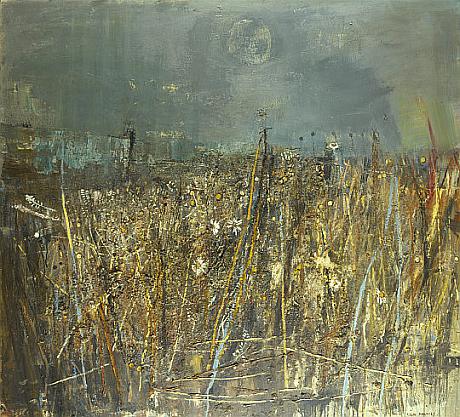
Seeded Grasses and Daisies
Joan Eardley
d. August 16, 1963
_______________________
Is the Sky Falling on the Content Industries?
Mark A. Lemley
Social Science Research Network
Abstract:
Content owners claim they are doomed, because in the digital environment, they can't compete with free. But they've made such claims before. This short essay traces the history of content owner claims that new technologies will destroy their business over the last two centuries. None have come to pass. It is likely the sky isn't falling this time either. I suggest some ways content may continue to thrive in the digital environment.
_______________________
Building an Audience (and a Case) for Translations
Chad Post
Building a Case for Translations, Part 2: “It’s Not The Elegance of the Hedgehog“
Chad Post
Publishing Perspectives
_______________________
New Knowledge Environments
Vol 1, No 1
Research Foundations for Understanding Books and Reading in the Digital Age
_______________________

Stalk
Laura Elrick
blip tv
Part dystopian urban cartography, part spatial-poetic intervention, this video/poem tracks a solitary figure (dressed iconically in the manner of a Guantanamo detainee) as it shuffles through work-a-day Manhattan at lunchtime. Appropriated text is from the Secret Orcon Interrogation Log, US Department of Defense. FYI: the first minute or so contains no images, only a black screen w/audio voiceover. Concept, Video Editing and Text: Laura Elrick; Camera: Kai Beverly-Whittemore & Kristin Prevallet; Field Support: Kythe Heller
.....................................................
The Ideal Glass
On Laura Elrick’s "Stalk" and the Poetics of Spatial Practice
David Wolach
jacket
(....)
The work is recursive: a rehearsal of crisis as crisis, metaphor within metaphor as metaphor, and this produces an urgent and complicating picture of picture (narrative) making. Yet, like the glass window of a city, one can easily pass by Stalk without seeing one’s reflection in it. And like the proprioceptive being, the sensing subject, one can manipulate it at least this much: turn it on, off, rewind, fast forward, skip or let go — Interrogate. As poem, the digital artifact becomes fleshy and vulnerable in “the premise of… place.”
This is also a work which demands more than one viewing in order to see or sense on a micro level, those moments, planned and unplanned, that occur just at the edge of the frame, and in the between aural spaces — between spoken lyric and cinematic (de)tour, between overt signification and fractured, sublating voice(s) underneath, including the sublingual voice of the music (composed entirely of MRI machine sounds) by Rizzia, member of the Chain Tape Collective.
(....)
There has been a resurgence in contiguity between poetics and political intervention in the past several years, particularly a re up and rethinking of Ranciere’s “redistribution of the sensible.” Though still unusual in today’s contemporary poetic landscape, such a re-imagining of poetic terrorism a la Hakim Bey, or of a more directed, politicized recalibration of the happening, have served as points of departure for increasing numbers of socially concerned poets, and this archival/spatial practice is every bit as conditioned by our eternal present’s situation of deepening crisis as it is a response to a long (in art time) period of underwhelming aesthetic-political production — both in poetry and in experimental visual art, a period that poet and critic Thom Donovan has aptly summarized as the decade of the reenactment.
The re-thinking of a kind of guerilla poetry for today’s aesthetic and political realities, on the tactical level, has often meant a refocusing of one’s commitments: from the ephemeral/expropriative of past practices to the archival and site-specific. A poetics of the archive is broadened through an intermingling of Foucault and Derrida’s pivotal work on archival practice, the archive re-theorized, as Werner and Voss have put it, to be an ideological space insofar as how one maps and generates systems that order the textual materials of that space amounts to controlling a narrative. ...(more)
Laura Elrick at PennSound
_______________________
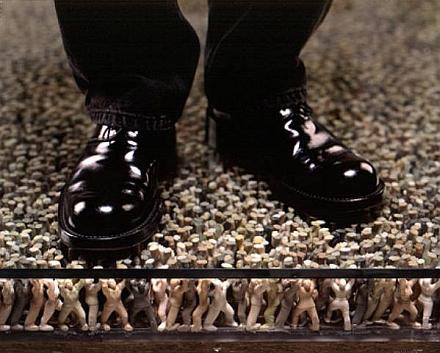
Floor
Do-Ho Suh
1 2
via Jim Johnson
_______________________
Ideas of the century: Scepticism (16/50)
Frank Furedi
tpm
Precisely because society is continually confronted with the ossification of its insights and the power of taken-for-granted truths it needs sceptics to encourage intellectual life to question its assumptions and yield to new experience. Contemporary society is no less drawn towards constructing dogma than previous ones. Indeed the tendency to morally condemn scepticism inadvertently signals the importance this philosophical view for the present era. Yet we have no choice but to live with our doubts. The antidote to our obsessive addiction to certainty is a regular dose of scepticism....(more)
_______________________

Charles Bukowski
b. August 16, 1920
|
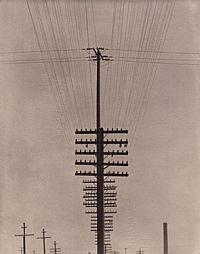


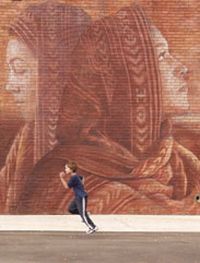 Janus Head
Janus Head

 The Age of Briggs & Stratton
The Age of Briggs & Stratton















































